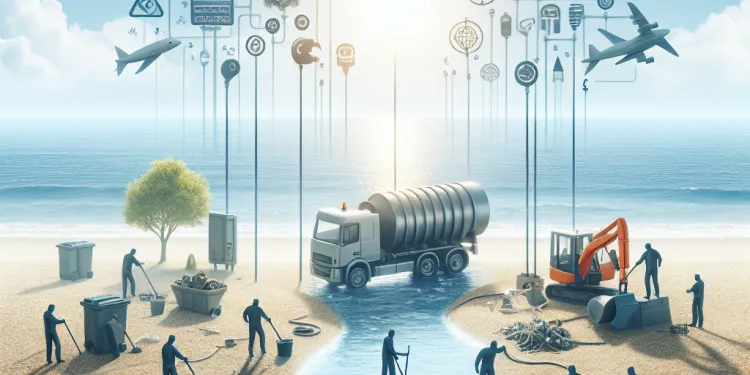
Find Help
More Items From Ergsy search
-
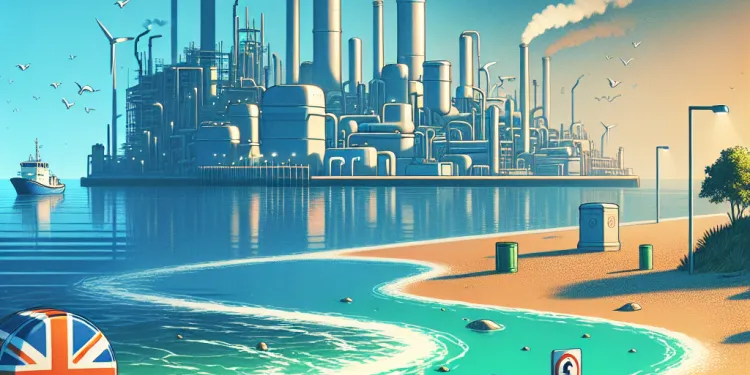
What causes sewage pollution on UK beaches?
Relevance: 100%
-
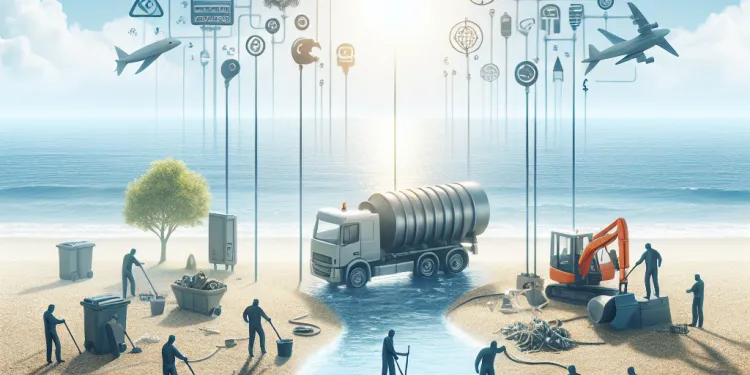
What is being done to address sewage pollution on UK beaches?
Relevance: 97%
-
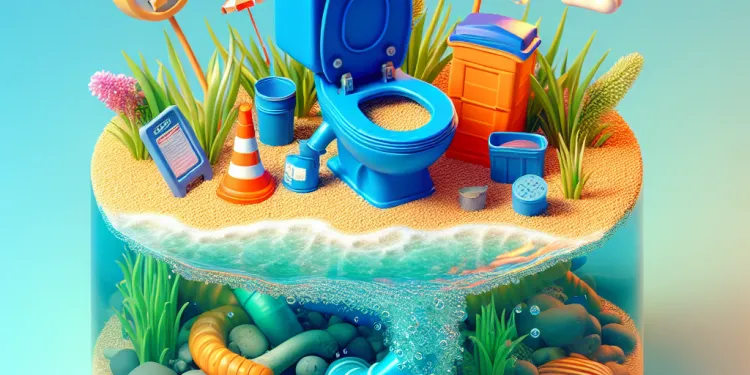
Is sewage a problem on UK beaches?
Relevance: 94%
-
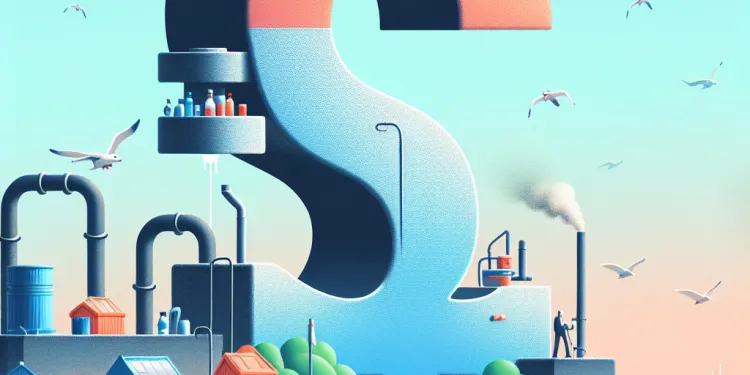
How can the public find out if a beach has sewage pollution?
Relevance: 90%
-
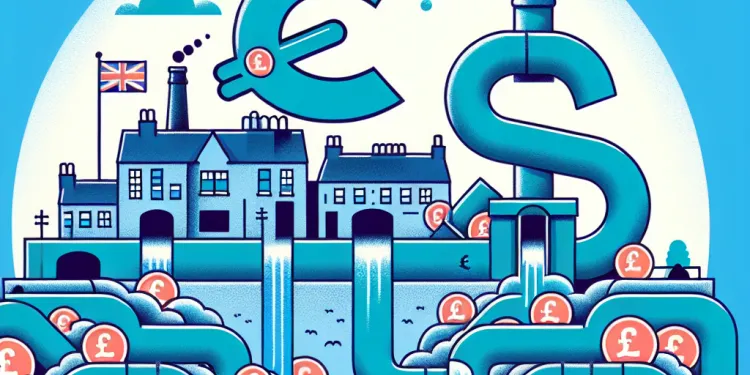
Which UK areas are most affected by sewage pollution?
Relevance: 70%
-
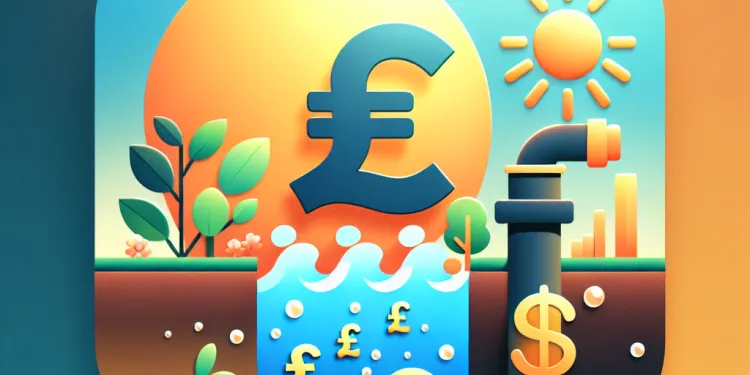
Is climate change affecting sewage pollution levels?
Relevance: 64%
-
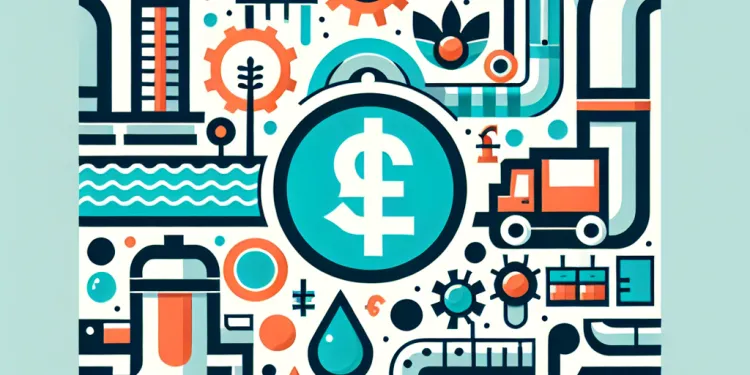
What agencies monitor and regulate sewage pollution in the UK?
Relevance: 62%
-
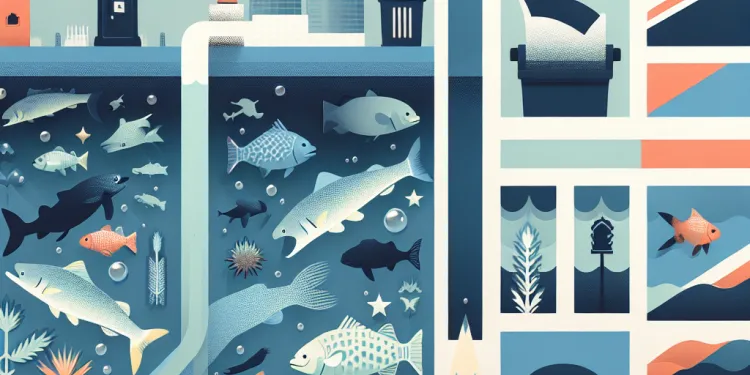
Can sewage pollution impact marine wildlife?
Relevance: 62%
-
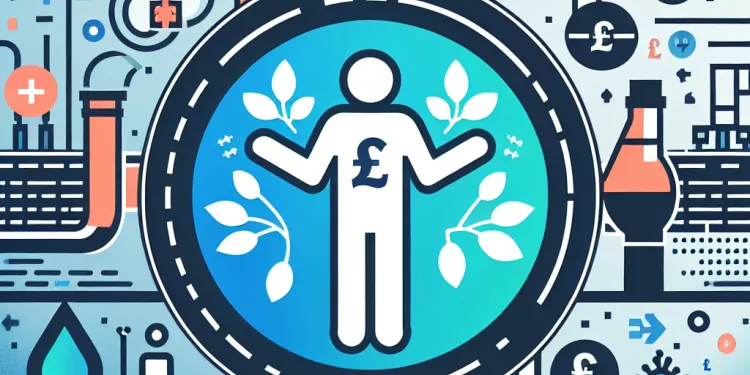
How does sewage pollution affect public health?
Relevance: 60%
-
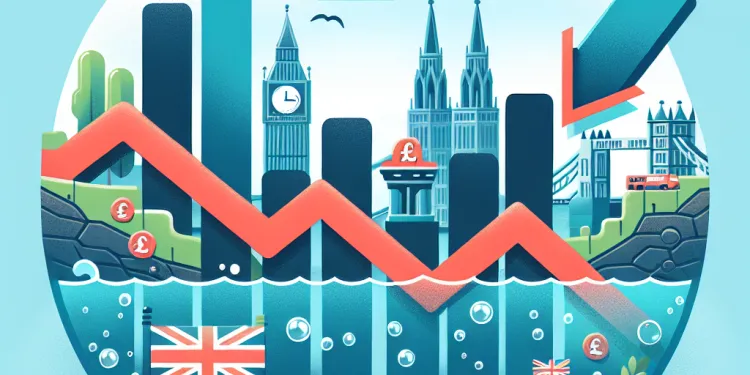
Has sewage pollution in the UK improved over recent years?
Relevance: 60%
-
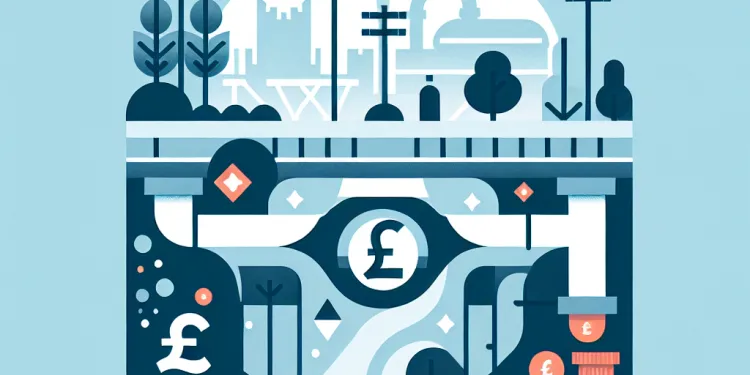
What role do water companies play in sewage pollution?
Relevance: 59%
-
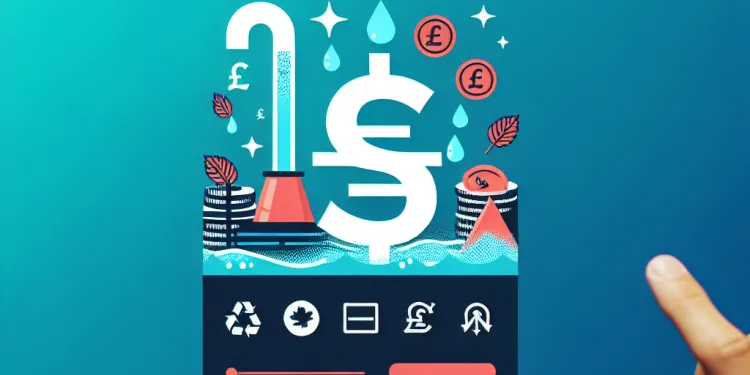
How can individuals help reduce sewage pollution?
Relevance: 59%
-
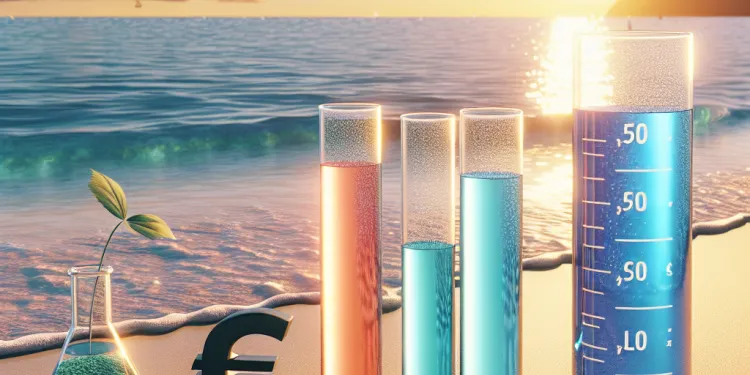
Are some UK beaches rated better for water quality than others?
Relevance: 47%
-
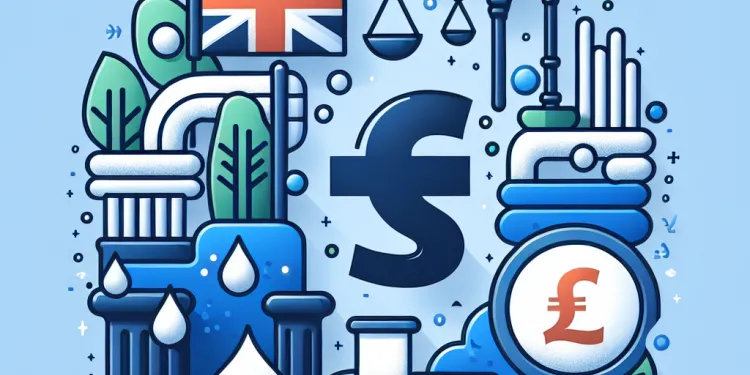
Are there legal guidelines for sewage discharge into UK waters?
Relevance: 42%
-
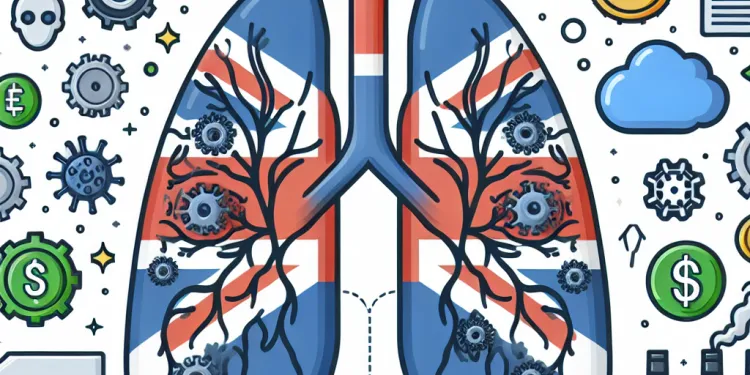
Air Pollution and Lung Cancer
Relevance: 30%
-

How does air pollution affect asthma?
Relevance: 28%
-

Rise in Childhood Asthma Linked to Air Pollution in Urban Areas
Relevance: 26%
-

High Air Pollution Levels Linked to Rising Cases of Respiratory Issues
Relevance: 26%
-

Where can I find information on air pollution and its effect on Asthma for my local area?
Relevance: 25%
-

Where can I find research studies on air pollution and asthma in my area?
Relevance: 25%
-

What are some common pollutants that affect asthma sufferers in urban areas?
Relevance: 25%
-
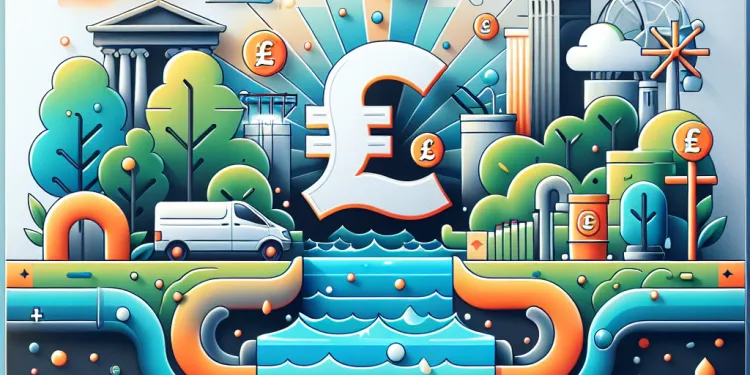
What is a Combined Sewer Overflow (CSO)?
Relevance: 20%
-

What local organizations provide information on air pollution and asthma?
Relevance: 19%
-

How can I reduce my exposure to air pollution if I have asthma?
Relevance: 18%
-

What local organizations provide information on air pollution and asthma?
Relevance: 18%
-

Where can I find general information about air pollution and asthma?
Relevance: 18%
-
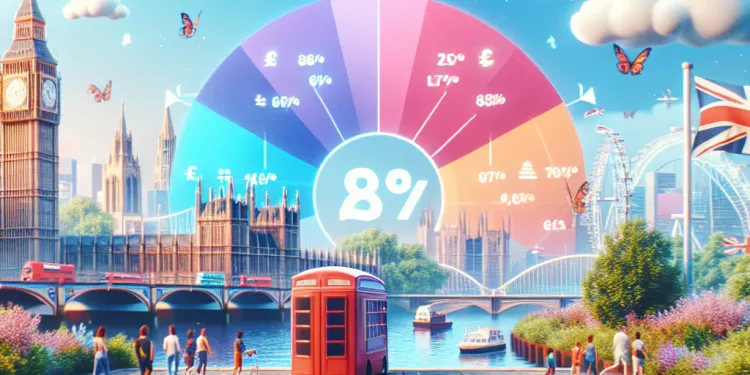
Is UK air quality changing?
Relevance: 15%
-

Are there mobile apps to track air quality and its impact on asthma?
Relevance: 13%
-
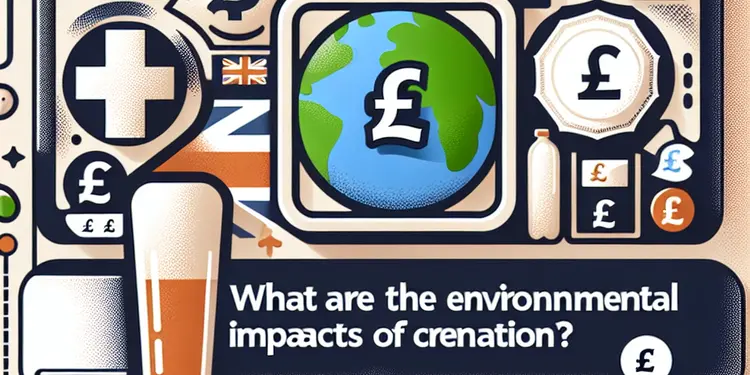
What are the environmental impacts of cremation?
Relevance: 13%
-

Is hay fever more common in urban areas?
Relevance: 12%
-

UK Study Links Poor Air Quality to Increased Asthma Cases in Urban Areas
Relevance: 12%
-

How do I check current air quality levels in my local area?
Relevance: 11%
-
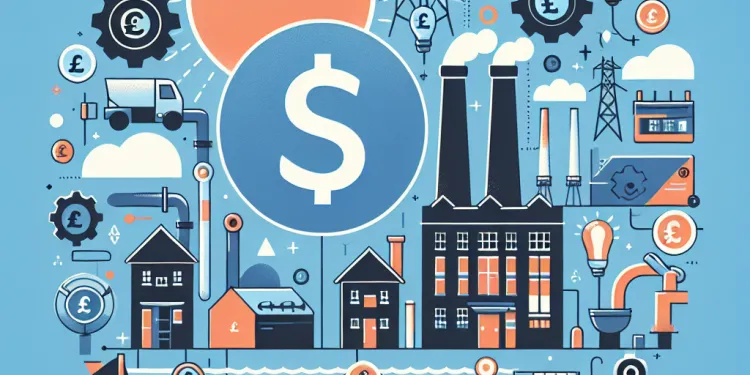
Are water companies responsible for maintaining water infrastructure in the UK?
Relevance: 11%
-

Why are experts warning of rising hay fever cases?
Relevance: 11%
-

What causes asthma?
Relevance: 11%
-

Why is infrastructure maintenance important?
Relevance: 10%
-
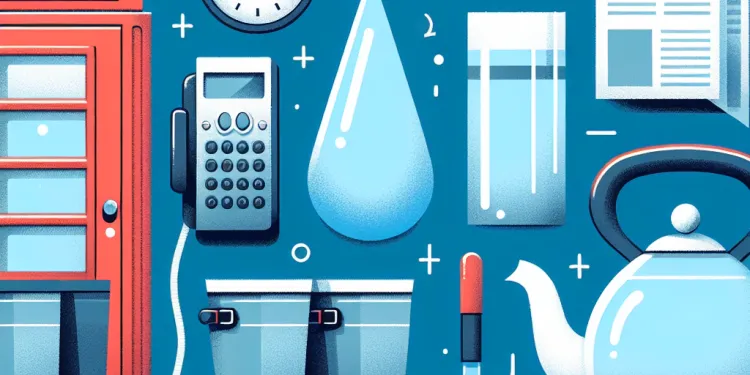
Which UK water companies are going to refund their customers?
Relevance: 10%
-

What triggers asthma attacks?
Relevance: 10%
-
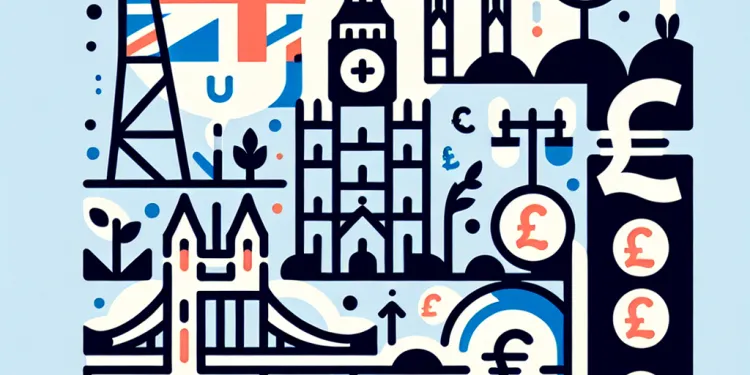
How many UK water companies are involved in the refund process?
Relevance: 9%
-

Will all customers of these UK water companies receive refunds?
Relevance: 9%
Addressing Sewage Pollution on UK Beaches
Introduction
Sewage pollution on UK beaches has become a pressing environmental issue, affecting marine biodiversity, public health, and recreational activities. Multiple strategies and initiatives are being implemented to tackle this problem and restore the environmental quality of the coastal areas.Government Regulations and Policies
The UK government, along with environmental agencies, is tightening regulations concerning sewage discharge into coastal waters. The Environment Agency and the Department for Environment, Food & Rural Affairs (DEFRA) have introduced stricter permits that water companies must adhere to. These measures are intended to reduce the frequency and volume of untreated sewage released into the sea, safeguarding both environmental and public health.Investment in Wastewater Infrastructure
Significant investments are being made to upgrade wastewater treatment plants and sewer systems. By enhancing the capacity and efficiency of these facilities, the aim is to prevent overflows during heavy rainfall. Water companies are investing in technologies to improve sewage treatment processes, ensuring that wastewater is adequately treated before being discharged into the sea.Public Awareness and Community Engagement
Public awareness campaigns are being launched to educate communities about the impact of sewage pollution and the importance of proper waste disposal. Initiatives encouraging community involvement in beach clean-ups and monitoring water quality are gaining traction. By fostering a sense of responsibility among local communities and tourists, these efforts aim to reduce pollution sources and advocate for cleaner coastal environments.Technological Innovations
Innovations in monitoring and predicting sewage discharges are being employed to better manage and prevent pollution events. Real-time water quality monitoring systems are being implemented to provide timely data on the presence of pollutants. Advanced prediction models help in anticipating overflow events, allowing for proactive measures to be taken to mitigate the impact.Collaborative Efforts
Collaboration between government bodies, local councils, environmental organizations, and private stakeholders is vital. Joint initiatives aim to develop holistic solutions to sewage pollution, ensuring that efforts are coordinated and effective. Partnerships with academic institutions are also fostering research into sustainable and innovative methods to combat beach pollution.Conclusion
Addressing sewage pollution on UK beaches requires a multifaceted approach involving regulation, infrastructure improvement, public engagement, technology, and collaboration. Through these efforts, there is a concerted move towards reducing pollution and preserving the natural beauty and safety of UK coastal areas for future generations.Stopping Pollution from Sewage on UK Beaches
What is the Problem?
Sewage pollution on UK beaches is a big problem. It hurts sea life, makes people sick, and ruins beach fun. Different ways are being tried to fix this and make the beaches clean again.Rules and Laws from the Government
The UK government and other groups are making stricter rules about sewage going into the sea. They want to make sure water companies follow these rules. The goal is to cut down on how much sewage goes into the sea, keeping the water clean and safe.Better Sewage Systems
Lots of money is being spent to make sewage systems better. They want to stop sewage from overflowing when it rains a lot. Water companies are using new technology to clean sewage better before it goes into the sea.Telling People and Involving Communities
Campaigns are happening to teach people about sewage pollution and how to dispose of waste properly. People are joining beach clean-ups and checking water quality. By working together, communities and tourists can help keep the beaches clean.New Technology
New tools are being used to watch and predict when sewage might pollute the water. These tools give quick updates on water pollution. By knowing early, steps can be taken to stop pollution before it happens.Working Together
The government, local councils, and other groups are working together. They are creating plans to solve sewage problems. Schools and universities are also helping by researching new ways to keep beaches clean.Summary
Fixing sewage pollution on UK beaches needs many different actions like rules, better systems, telling people, using technology, and teamwork. Together, these actions aim to make UK beaches clean and safe for everyone to enjoy.Frequently Asked Questions
What is sewage pollution and why is it a concern for UK beaches?
Sewage pollution occurs when untreated or partially treated wastewater is discharged into the environment, often due to infrastructure failures or overflows. It is a concern for UK beaches as it poses health risks to swimmers, harms marine life, and damages the environment.
Who is responsible for managing sewage pollution on UK beaches?
Water companies are primarily responsible for managing sewage infrastructure in the UK, while the Environment Agency monitors compliance and enforces regulations to prevent pollution.
What regulations are in place to control sewage pollution on UK beaches?
The UK has implemented the Bathing Water Regulations, which are derived from EU legislation, to ensure water quality standards are met. These regulations require regular testing and monitoring of designated bathing waters.
What actions are being taken by the government to address sewage pollution?
The UK government is working with water companies to upgrade sewage infrastructure, enforce stricter regulations, and increase penalties for pollution incidents. They have also launched initiatives to improve water quality monitoring and reporting.
Are there any technological solutions being used to combat sewage pollution?
Yes, technological solutions such as real-time water quality monitoring systems, improved wastewater treatment technologies, and predictive modeling to manage overflows are being implemented to reduce sewage pollution.
What role do water companies play in addressing sewage pollution?
Water companies are responsible for maintaining and upgrading sewage infrastructure to prevent pollution, investing in new technologies, and ensuring compliance with water quality regulations.
How can the public contribute to reducing sewage pollution on beaches?
The public can help by reducing water usage during heavy rain, properly disposing of waste, avoiding flushing non-biodegradable items, and reporting pollution incidents to authorities.
What are some recent improvements in sewage infrastructure in the UK?
Recent improvements include the construction of new sewerage systems, expansion of treatment plant capacity, installation of overflow storage tanks, and the application of green infrastructure solutions to manage stormwater.
How is sewage pollution monitored on UK beaches?
The Environment Agency conducts regular water quality tests at designated bathing sites during the bathing season, with results reported to the public. Some beaches also have real-time online monitoring systems.
What penalties do water companies face for sewage pollution incidents?
Water companies in the UK can face substantial fines, legal action, and increased regulatory scrutiny if they fail to prevent or properly manage sewage pollution incidents.
How are local communities affected by sewage pollution on beaches?
Local communities can suffer from health risks, loss of tourism revenue, environmental damage, and reduced quality of life due to sewage pollution on nearby beaches.
What is 'combined sewer overflow' and how does it relate to sewage pollution?
Combined sewer overflow (CSO) occurs when heavy rainfall overwhelms sewer systems, causing untreated sewage to be discharged into waterways. It is a significant contributor to beach pollution.
Are there any educational campaigns to raise awareness of sewage pollution?
Yes, various environmental organizations and government bodies run educational campaigns to inform the public about the causes of sewage pollution and how to minimize their impact.
What future plans are in place to further reduce sewage pollution on UK beaches?
Future plans include continuing infrastructure upgrades, stricter enforcement of pollution controls, increased investment in sustainable drainage systems, and the integration of climate resilience into sewage management strategies.
Where can I find current water quality information for UK beaches?
Current water quality information for UK beaches can be found on the Environment Agency's website or through local council publications and environmental organization reports.
What is sewage pollution and why is it a problem for UK beaches?
Sewage pollution happens when dirty water from toilets and drains goes into rivers and the sea.
This is a problem for beaches in the UK because:
- It can make people sick when they swim or play in the water.
- It can harm fish and animals that live in the sea.
- Nobody likes to see or smell dirty water on the beach.
To help understand and remember this, you can:
- Look at pictures of clean and polluted water.
- Talk with someone about why clean beaches are nice.
- Use apps that show where water is safe for swimming.
Sewage pollution happens when dirty water goes into nature without being cleaned properly. This can happen when the systems we use to treat the water break or are too full.
This is bad for UK beaches because it can make people who swim sick. It also hurts sea animals and harms the planet.
To help understand better, you can use pictures to see how it works. You can also watch videos that explain it easier, or ask someone to read it with you and help you learn.
Who takes care of cleaning dirty water on UK beaches?
Water companies look after the pipes and systems for taking away dirty water in the UK. The Environment Agency checks to make sure they follow the rules and stop pollution.
How does the UK keep beaches clean from sewage?
The UK has rules to stop sewage pollution on beaches. These rules help keep the water safe and clean.
Here are some things that help:
- Special places clean sewage water before it goes into the sea.
- People check beach water to make sure it's clean.
- If there is too much sewage, warnings are given to people.
Use pictures and videos to learn more about beach safety. Ask an adult if you need help or have questions.
The UK has rules called the Bathing Water Regulations. These rules come from the EU, which is a group of countries. The rules make sure the water is clean and safe. They say people must check and test the water often at places where people swim.
What is the government doing about dirty water?
The UK government is teaming up with water companies to make the pipes and sewage systems better. They want to have stricter rules and give bigger fines if people pollute the water. They are starting new projects to check and tell us more about how clean the water is.
Are people using technology to help stop dirty water pollution?
Yes, there are new technologies to help keep water clean. These include:
1. Machines that watch water quality all the time.
2. Better ways to clean dirty water.
3. Smart tools to stop water spills before they happen.
What do water companies do to stop dirty water pollution?
Water companies help clean our rivers and seas. They make sure dirty water goes away safely. They do this by:
- Cleaning dirty water in special places called treatment plants.
- Fixing pipes to stop leaks.
- Checking the water is clean and safe.
If you want help with reading, try using:
- Reading apps that read aloud to you.
- Pictures that show what the words mean.
Water companies take care of sewage pipes and systems. They make sure they don't cause pollution. They use new tools and technology to do this. They also follow rules to keep water clean and safe.
How can people help stop dirty water on beaches?
Here are some easy ways to help keep our beaches clean:
- Use less water: Try to take short showers and turn off the tap when you brush your teeth. Using less water helps stop the drains from overflowing.
- Don’t flush rubbish: Only flush toilet paper down the toilet. Throw away things like wipes, cotton buds, or nappies in the bin.
- Pick up litter: If you see rubbish on the beach, pick it up and put it in a bin. This keeps the beach nice and stops it from getting into the sea.
- Tell others: Talk to your friends and family about keeping beaches clean. The more people know, the better we can protect our beaches.
There are also tools that can help:
- Beach clean-up groups: Join a local group that cleans beaches. It’s fun and helpful!
- Games and apps: Use fun apps or games on your tablet or phone that teach about keeping water clean.
By doing these things, you can help make a big difference!
You can help by using less water when it rains a lot. Throw rubbish in the bin, not the toilet. Don’t flush things that don’t break down, like plastic. If you see pollution, tell the people in charge.
What are the new changes to the UK's sewage system?
We have made new changes to help clean water better.
We built new pipes to carry dirty water. This helps take water away from homes and streets.
We made the places that clean water bigger. This means they can clean more water at once.
We put in big tanks to hold extra rainwater. When it rains a lot, these tanks stop water from flooding.
We use plants and gardens to soak up rainwater. This helps keep streets from flooding.
You can try using pictures or videos to understand how these changes help with water cleaning.
How do we check for dirty water on UK beaches?
We can use simple words to explain. Sometimes, dirty water can end up in the sea near beaches. To keep swimmers safe, people need to check the water.
Special workers test the water. They look for dirt and germs. They have tools to help them find out if the water is clean or dirty.
If the water is dirty, signs might be put up on the beach. These signs tell people it is not safe to swim.
Using pictures or videos can help understand more about how workers do these tests.
The Environment Agency checks the water at swimming spots often. They do this when people go swimming most. They tell everyone the results. Some beaches have special online checks people can see right away.
What happens to water companies if they pollute water with sewage?
Here is an easier way to understand:
If a water company puts dirty sewage into rivers or sea, they get in trouble.
These are the things that can happen:
- The company might have to pay money because they did a bad thing.
- They might have to promise to do better next time.
Here is a way to get more help:
- You can ask a grown-up to explain it to you.
- Pictures and videos about water pollution can help you learn more.
If water companies in the UK do not stop or handle sewage pollution properly, they can get into big trouble. They could have to pay a lot of money, get taken to court, or have more rules to follow.
How does sewage pollution on beaches affect local communities?
Sewage pollution happens when dirty water goes into the sea. This can affect the people who live nearby in different ways.
Here are some ways it can affect local communities:
- Health: People can get sick if they swim in dirty water. They might get stomach aches or rashes.
- Environment: Animals and plants in the water can also get sick or die because of the pollution.
- Tourism: Fewer people might visit the beach, which means less business for shops and restaurants.
Here are some tools and techniques that can help:
- Check if the beach is safe before swimming. Look for signs or check online.
- Get involved in beach clean-up activities to help keep the beach clean.
Sewage pollution on beaches can hurt nearby communities. It can make people sick, keep tourists away, harm nature, and make life worse for those living nearby.
What is 'combined sewer overflow' and how does it link to dirty water problems?
A 'combined sewer overflow' (CSO) is when too much rain makes dirty water and rainwater mix and spill out. This can happen if there is a lot of rain or if drains get blocked.
This mix of dirty water can get into our rivers and lakes. This is called water pollution. It's bad for fish and plants that live in the water.
To understand more, you can look at pictures or watch videos. They can show how sewers and water systems work.
Sometimes heavy rain makes the sewer systems too full. This can cause dirty water to spill into rivers and oceans. This dirty water is called untreated sewage. It can make our beaches dirty.
Do people teach about dirty water pollution?
Yes, different groups and the government help teach people about what causes sewage pollution and how to make it less harmful.
What are the plans to make UK beaches cleaner?
Here are some ways to help understand:
- Use pictures or drawings to explain plans.
- Watch videos about keeping beaches clean.
- Ask someone to read with you.
Plans for the future:
- Make buildings and roads better.
- Follow pollution rules more strictly.
- Spend more money on drainage that helps the environment.
- Add climate protection to sewage plans.
Tips to help:
- Use pictures or diagrams to understand better.
- Ask someone to read it with you and explain.
- Take breaks if you need to.
How do I find out about the water at UK beaches?
You can check websites to see if the water is clean at UK beaches. You can also ask someone who knows. If you have trouble reading, you can use tools like text-to-speech to help.
You can find out how clean the water is at UK beaches. Look on the Environment Agency's website. You can also check with your local council or read reports from groups that help the environment.
Useful Links
Have you found an error, or do you have a link or some information you would like to share? Please let us know using the form below.
-->
This website offers general information and is not a substitute for professional advice.
Always seek guidance from qualified professionals.
If you have any medical concerns or need urgent help, contact a healthcare professional or emergency services immediately.
Some of this content was generated with AI assistance. We’ve done our best to keep it accurate, helpful, and human-friendly.
- Ergsy carfully checks the information in the videos we provide here.
- Videos shown by Youtube after a video has completed, have NOT been reviewed by ERGSY.
- To view, click the arrow in centre of video.
- Most of the videos you find here will have subtitles and/or closed captions available.
- You may need to turn these on, and choose your preferred language.
- Go to the video you'd like to watch.
- If closed captions (CC) are available, settings will be visible on the bottom right of the video player.
- To turn on Captions, click settings .
- To turn off Captions, click settings again.
More Items From Ergsy search
-

What causes sewage pollution on UK beaches?
Relevance: 100%
-

What is being done to address sewage pollution on UK beaches?
Relevance: 97%
-

Is sewage a problem on UK beaches?
Relevance: 94%
-

How can the public find out if a beach has sewage pollution?
Relevance: 90%
-

Which UK areas are most affected by sewage pollution?
Relevance: 70%
-

Is climate change affecting sewage pollution levels?
Relevance: 64%
-

What agencies monitor and regulate sewage pollution in the UK?
Relevance: 62%
-

Can sewage pollution impact marine wildlife?
Relevance: 62%
-

How does sewage pollution affect public health?
Relevance: 60%
-

Has sewage pollution in the UK improved over recent years?
Relevance: 60%
-

What role do water companies play in sewage pollution?
Relevance: 59%
-

How can individuals help reduce sewage pollution?
Relevance: 59%
-

Are some UK beaches rated better for water quality than others?
Relevance: 47%
-

Are there legal guidelines for sewage discharge into UK waters?
Relevance: 42%
-

Air Pollution and Lung Cancer
Relevance: 30%
-

How does air pollution affect asthma?
Relevance: 28%
-

Rise in Childhood Asthma Linked to Air Pollution in Urban Areas
Relevance: 26%
-

High Air Pollution Levels Linked to Rising Cases of Respiratory Issues
Relevance: 26%
-

Where can I find information on air pollution and its effect on Asthma for my local area?
Relevance: 25%
-

Where can I find research studies on air pollution and asthma in my area?
Relevance: 25%
-

What are some common pollutants that affect asthma sufferers in urban areas?
Relevance: 25%
-

What is a Combined Sewer Overflow (CSO)?
Relevance: 20%
-

What local organizations provide information on air pollution and asthma?
Relevance: 19%
-

How can I reduce my exposure to air pollution if I have asthma?
Relevance: 18%
-

What local organizations provide information on air pollution and asthma?
Relevance: 18%
-

Where can I find general information about air pollution and asthma?
Relevance: 18%
-

Is UK air quality changing?
Relevance: 15%
-

Are there mobile apps to track air quality and its impact on asthma?
Relevance: 13%
-

What are the environmental impacts of cremation?
Relevance: 13%
-

Is hay fever more common in urban areas?
Relevance: 12%
-

UK Study Links Poor Air Quality to Increased Asthma Cases in Urban Areas
Relevance: 12%
-

How do I check current air quality levels in my local area?
Relevance: 11%
-

Are water companies responsible for maintaining water infrastructure in the UK?
Relevance: 11%
-

Why are experts warning of rising hay fever cases?
Relevance: 11%
-

What causes asthma?
Relevance: 11%
-

Why is infrastructure maintenance important?
Relevance: 10%
-

Which UK water companies are going to refund their customers?
Relevance: 10%
-

What triggers asthma attacks?
Relevance: 10%
-

How many UK water companies are involved in the refund process?
Relevance: 9%
-

Will all customers of these UK water companies receive refunds?
Relevance: 9%


